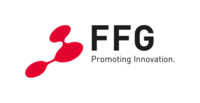Novel digital solutions improving the ways in which different systems in the railway sector communicate with each other.
Background
Digitization offers a wide range of opportunities to enhance the competitiveness of the railway system as a whole and the rail freight transport in particular. Above all, a better interoperability between different systems is needed. More precisely, software solutions, platforms and services from different manufacturers and providers should work together smoothly across different value chains, sectors and regions. This would increase efficiency, help to expand the services offered, pave the way for new business models, and reduce the competitive disadvantages vis-à-vis other modes of transport.
Project content
Interoperability is a key factor in digitization. However, an automated exchange and a subsequent processing of data is only possible if the (technical) interfaces between the individual systems are standardized. This is not easily done, as some companies are in competition with each other and might not see any immediate advantage in harmonizing their systems. Hence, structured processes, during which the different actors meet at eye level, are needed. In the exploratory project IRS Cargo, we set up such a structured process and support different players in joining forces to specify interoperable interfaces. In addition, we provide a test environment for interoperability tests. The long-term goal is to enable seamless networking and an automated data exchange between different systems.
Goals
The overarching goal of this exploratory project is to initiate the development of modular process chains that increase the interoperability of ICT systems in the rail sector. The main focus is on the needs of combined and intermodal transport (transports across different modes). We intend to:
- overcome barriers that stand in the way of connecting different IT systems in the rail sector,
- to convince actors in the railway sector of the benefits and the competitive advantages offered by interoperable solutions,
- to use digitization as a basis to create new, innovative business processes,
- to reduce dependencies on single manufacturers and further the shift from isolated solutions that are not freely accessible to integrated and open solutions,
- and to strengthen the role of railway transport in achieving climate and sustainability goals.
Methodology
We employ established methods from various fields (e.g., medicine, energy supply) and exploit synergies to achieve rapid results. The underlying methodology runs like a red thread through the project from the specification of the ICT interfaces to the tests needed for checking system interoperability.
Building on experience and prior knowledge, the interoperability profiles necessary for information flow and data exchange are adapted to the requirements of rail freight transport. To produce sustainable outcomes and ensure that the harmonization of ICT interfaces goes on after the end of the project, great importance is attached to the cooperation of users and manufacturers throughout the entire process.
To prepare the targeted interoperability for everyday operation, tests are needed. To this end, we use the open source tool "Gazelle", which is a software for testing the interoperability of eHealth information systems. We evaluate this test platform and carry out a gap analysis. After that we add missing functionalities to be able to create test scenarios that are common in the railroad sector.
In a stakeholder dialog as many use cases as possible are identified. Use cases are then prioritized and concrete steps are taken to prepare the implementation in a RDI follow-up project.
Result
Shifting freight transport to rail is an important aspect of climate protection. However, to increase the capacity of rail networks and the flexibility of rail transport – and as a result strengthen its position vis-à-vis other modes of transport – the different systems in use need to communicate smoothly. Here, we set the stage for this and provide a knowledge base which can be used in follow-up projects to establish new IT systems, achieve cost savings and tap into new market opportunities.
Whitepaper:
https://www.bahnindustrie.at/b541m316/white-paper-for-an-interoperability-process
Mobility of the Future is a research, technology and innovation funding programme of the Republic of Austria, Ministry of Climate Action. The Austrian Research Promotion Agency (FFG) has been authorised for the programme management.
You want to know more? Feel free to ask!
Academic Director Rail Technology and Mobility (BA)
Academic Director Rail Vehicle Technology (BA)
Head of Research Institute
Carl Ritter von Ghega Institute for Integrated Mobility Research
Deputy Academic Director Rail Technology and Management of Railway Systems (MA)
Department of Rail Technology and Mobility
- Verband der Bahnindustrie (VBI)
- Fachhochschule Technikum Wien




